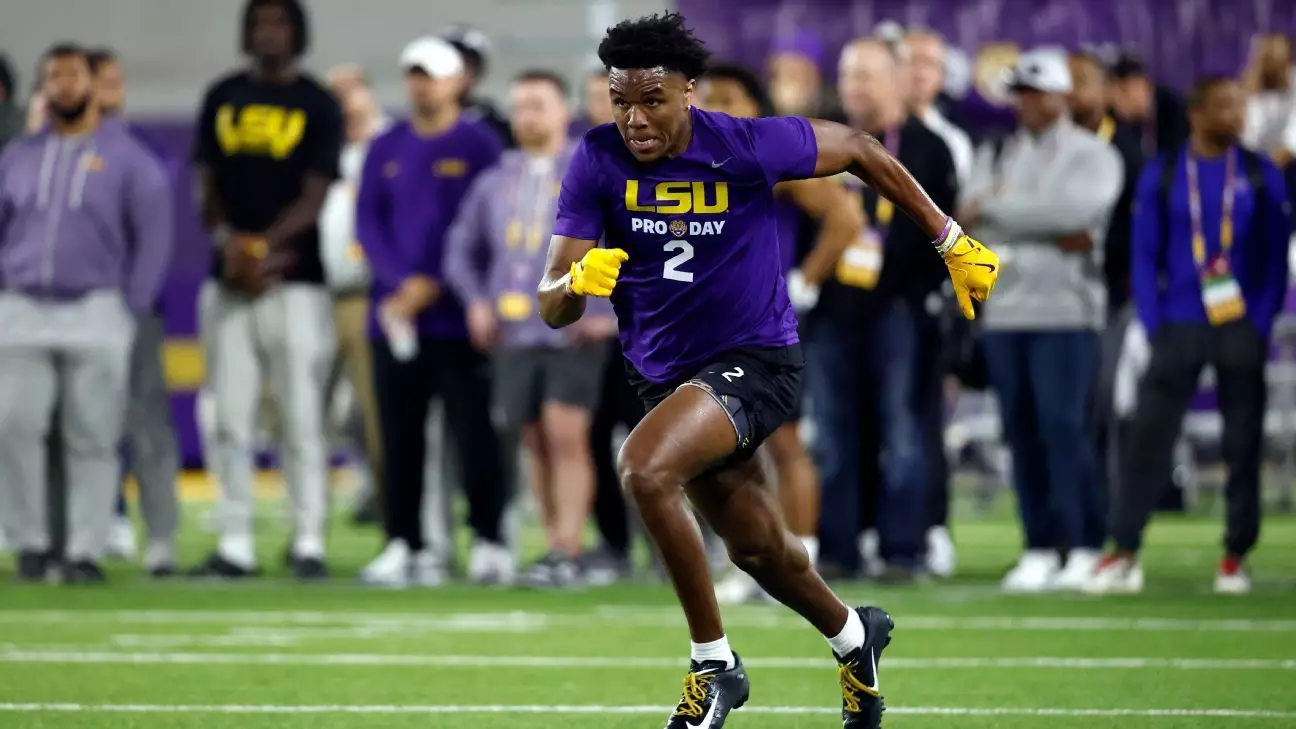Kyren Lacy, a former wide receiver for Louisiana State University (LSU), was on the cusp of achieving his dreams when a series of unfortunate events shattered his fledgling career and ultimately led to his untimely death in Houston. This tragic incident sheds light on the complexities and pressures faced by young athletes as they navigate the path to professional sports stardom. Lacy’s life reflects a convergence of promise, poor choices, and heartbreak, raising questions about the responsibility of athletes both on and off the field.
The Incident that Changed Everything
The 24-year-old was embroiled in a catastrophic incident on December 17, where he was accused of causing a fatal car crash. According to police reports, Lacy was driving a 2023 Dodge Charger recklessly, engaged in illegal maneuvers that ultimately resulted in the death of a 78-year-old man, Herman Hall. The circumstances were alarming: Lacy was allegedly speeding in a designated no-passing zone, a decision that exhibited a blatant disregard for human life and safety. Such actions highlight a troubling tendency among some young athletes, who may believe they are invincible, buoyed by their physical prowess and the fame that accompanies their athletic success.
However, the narrative did not end there. What’s even more disturbing is that Lacy fled the crash scene without reporting the accident, demonstrating a profound lack of accountability that would mar his legacy. While Lacy’s agent claimed he was cooperating with authorities, the damage inflicted that night would linger long after.
The Ripple Effects of Poor Decisions
The implications of Lacy’s actions extend far beyond his individual life; they impact the family of the victim, the LSU community, and the sports world at large. Herman Hall’s tragic death serves as a somber reminder that every decision a young athlete makes can have catastrophic consequences. The duality of Lacy’s potential as an athlete and the heartbreaking reality of the damage he caused is a poignant reflection of the pressures that accompany sports culture.
Lacy’s involvement in a hit-and-run underscored societal issues related to accountability and responsibility, particularly in the lives of public figures. Could more robust support systems have influenced his decisions? The NCAA and college athletic departments must reevaluate how they prepare student-athletes for the mental and emotional challenges they may face, especially when transitioning to a professional career.
Mental Health: An Overlooked Factor
Another critical aspect of this tragedy is the often-neglected mental health of young athletes. The pressure to excel in high-pressure environments can lead to overwhelming stress and poor decision-making. Lacy, who declared for the NFL draft just two days after the incident, faced intense scrutiny and choice overload. What drove him to act recklessly? Was it too much pressure to perform, or a misguided belief in his invulnerability?
Professional sports can create an isolating world in which an athlete may feel that their worth is solely tied to their performances. In Lacy’s case, the combination of personal ambition, external expectations, and scant coping skills may have culminated in a perfect storm, ultimately leading to a disastrous outcome. Recognizing these signs and addressing mental health in athletic settings should be a priority for sports organizations.
Legacy: Shattered Dreams and Lessons Learned
In the wake of Lacy’s passing, we are left grappling with the broader implications of his story. What remains of his legacy, now intertwined with tragedy, is a cautionary tale for athletes everywhere. The stark contrast between his accolades—his impressive statistics during his tenure at LSU and his spot among the top prospects in the NFL draft—and the circumstances surrounding his demise is a heartbreaking juxtaposition.
This tragedy serves as a painful reminder of the fragility of life and the necessity of accountability, especially within elite sports circles. Moving forward, there lies an urgent need for reform in how we support and guide young athletes, ensuring they are better equipped to handle the challenges and temptations that come with fame and success. The sports community must proactively address these issues, or the potential loss of promising futures will continue to haunt us.


Leave a Reply